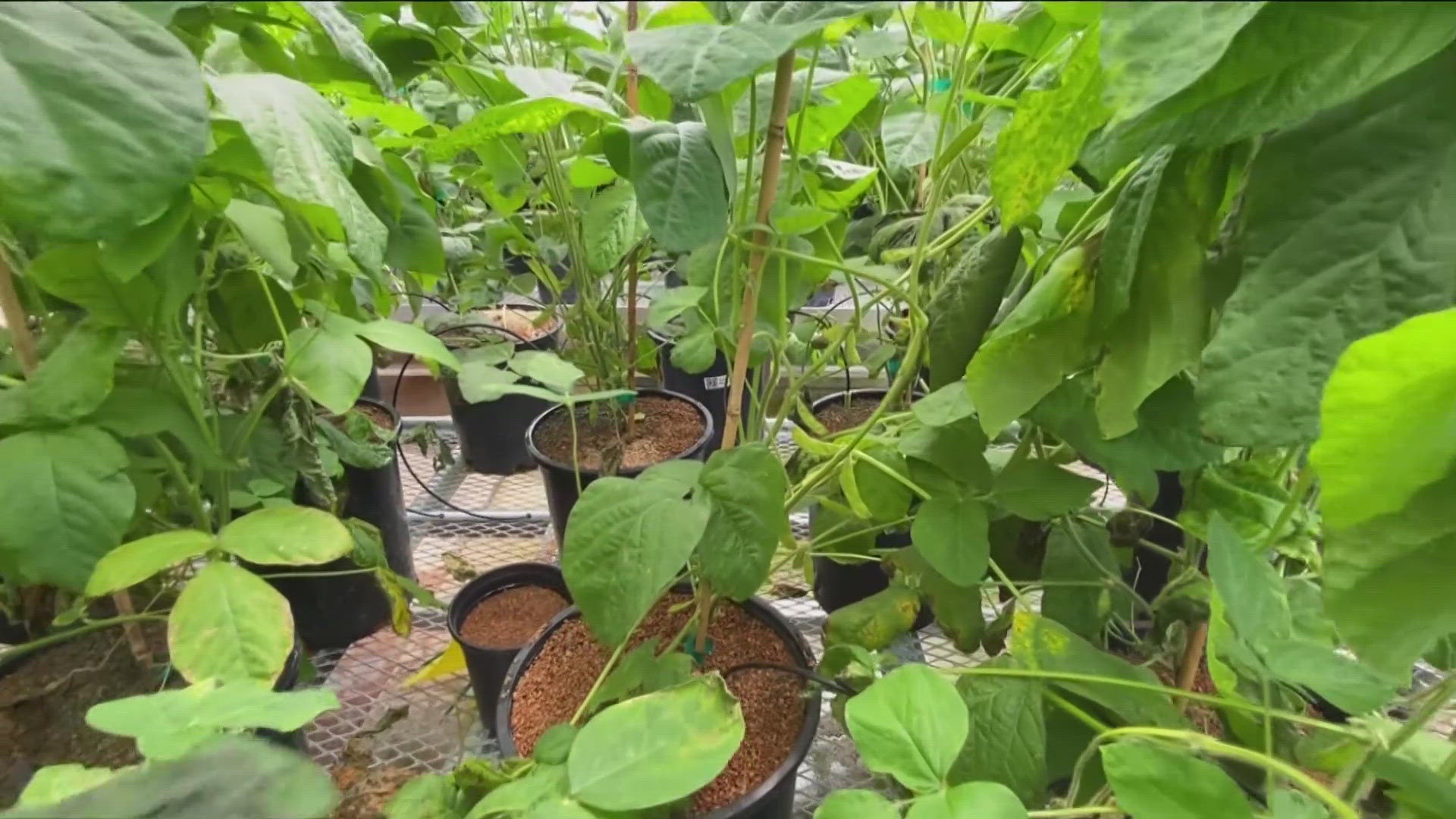SAN DIEGO — As research continues to show global temperatures on the rise, scientists are looking for ways to maintain future crops in the face of this adjustment. Research at the Salk Institute in La Jolla shows that the interaction with two key nutrients is essential in maintaining their nutritious value. This study also offers up additional data on how these plants could help combat climate change.
"If the global temperatures rise and we continue to produce food for us, that should be nutritious, why should we accept that there is actually less nutrients in plants then," said Wolfgang Busch, PhD, Professor at the Salk Institute for Biological Studies.
There's something to think about, and here's more food for thought. Scientists believe global temperatures will rise by close to 3 degrees Fahrenheit by 2050. When it comes to plants, they are sensitive and have no way to regulate their own temperatures.
The response of heat to plant growth has been mainly observed in a plant's shoot. The parts you see above ground, the stem, leaves, buds and flowers. Through a progress called thermomorphogenesis, researchers studied a plant's growth response to elevated temperatures, initially in their shoots. Growing on that knowledge, they also looked at the root response and its interaction with the shoot.
"There's actually a gene. The gene is called HY5 that basically travels along the shoot to the root, and also gets made in the root that basically tells cells to grow faster and expand more in response to high temperature," explained Busch.
HY5 also manages another protein that senses nitrogen, regulates phosphorus levels and coordinates plant root growth called the NRT1.1 gene. For a plant to be nutritious, two key nutrients need to be present in the soil, nitrogen and phosphorus. While the recent study at the Salk Institute found that plant root growth significantly increases when exposed to higher temperatures, there is a catch.
"Plants deposit less nutrients like nitrogen and phosphate in their leaves, for instance. They grow more, but they don't accumulate as many nutrients in their above ground parts," explained Busch.
This makes them less nutritious for us and animals to feed off. Nitrogen is good for a high protein diet. Phosphorus is needed for plant growth. Already present in most soils, this research shines a light on their importance in future crops. Shoots and roots will grow with warming temperatures, but nitrogen and phosphorus rich soil is needed.
"If you don't have enough nitrogen or phosphoric, you're not going to, as a plant, you're not going to grow as fast when the temperatures rise," said Busch.
Initially studied in the lab plant, Arabidopsis thaliana, Salk researchers are growing their knowledge on whether crop plants like soybeans in addition to rice plants, which are in the grass family and found in most cereals, will response the same way to warming temperatures. Soybean and rice plants have similar proteins, including HY5, that share a common genetic ancestor to lab plants.
"And we know that in both of these species, these responses are conserved, so they occur. So, we believe for almost any crop plant, that we want to work with, and that is important for feeding the world, this response will be present," said Busch.
This research expands on the process of naturally engineering plants and propagating that has been practiced for the last 10,000 years for higher yielding and nutritious crops. Now, it would be at a faster rate with the goal of nourishing ourselves, while making plants more resilient to greenhouse gases that are causing global warming.
"Because not only do we want to sequester carbon, we also want to make sure that plants are, and continue to be nutritious, or become even more nutritious," said Busch.
WATCH RELATED: Salk Institute using AI to engineer crops to fight climate change

